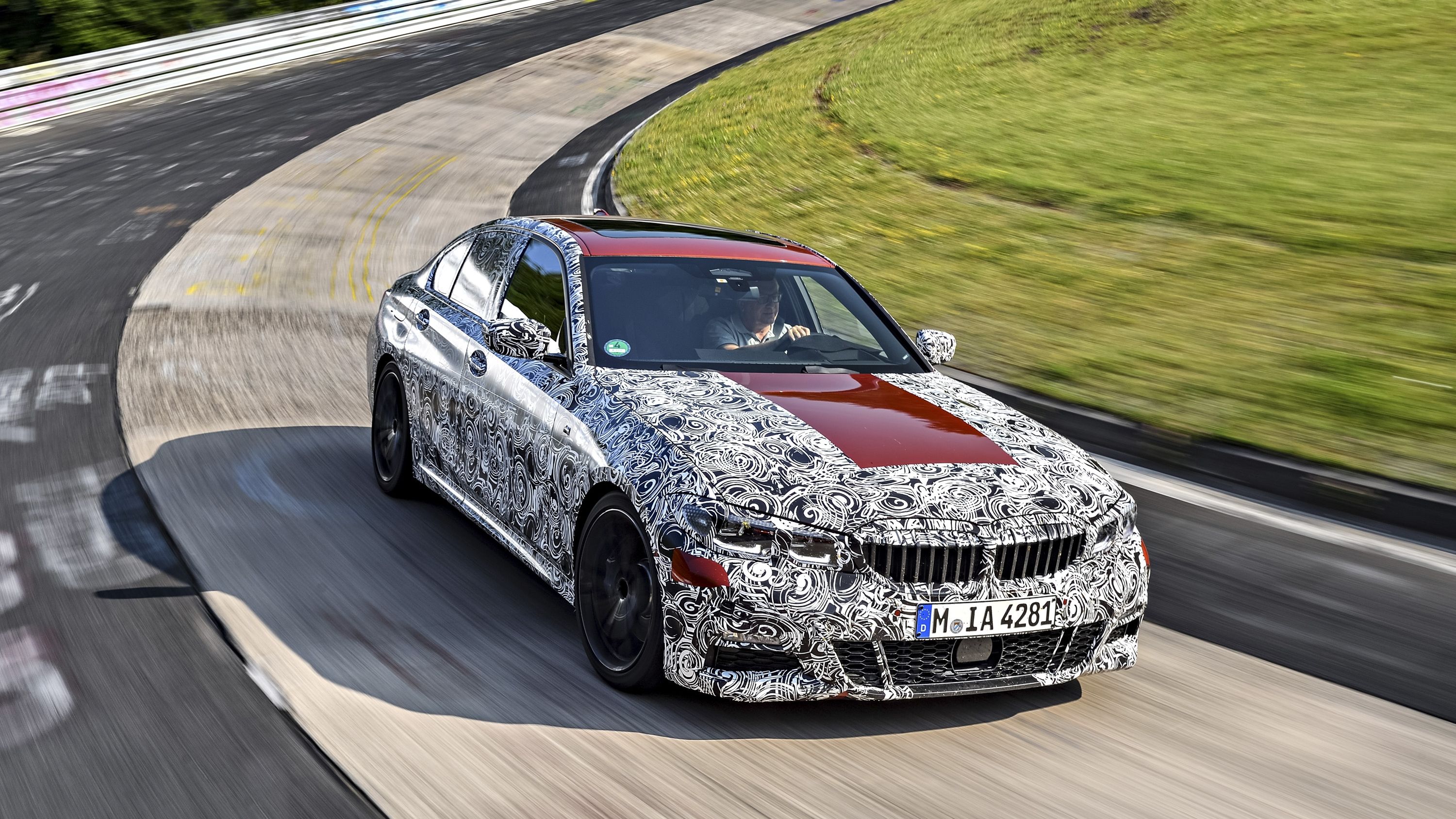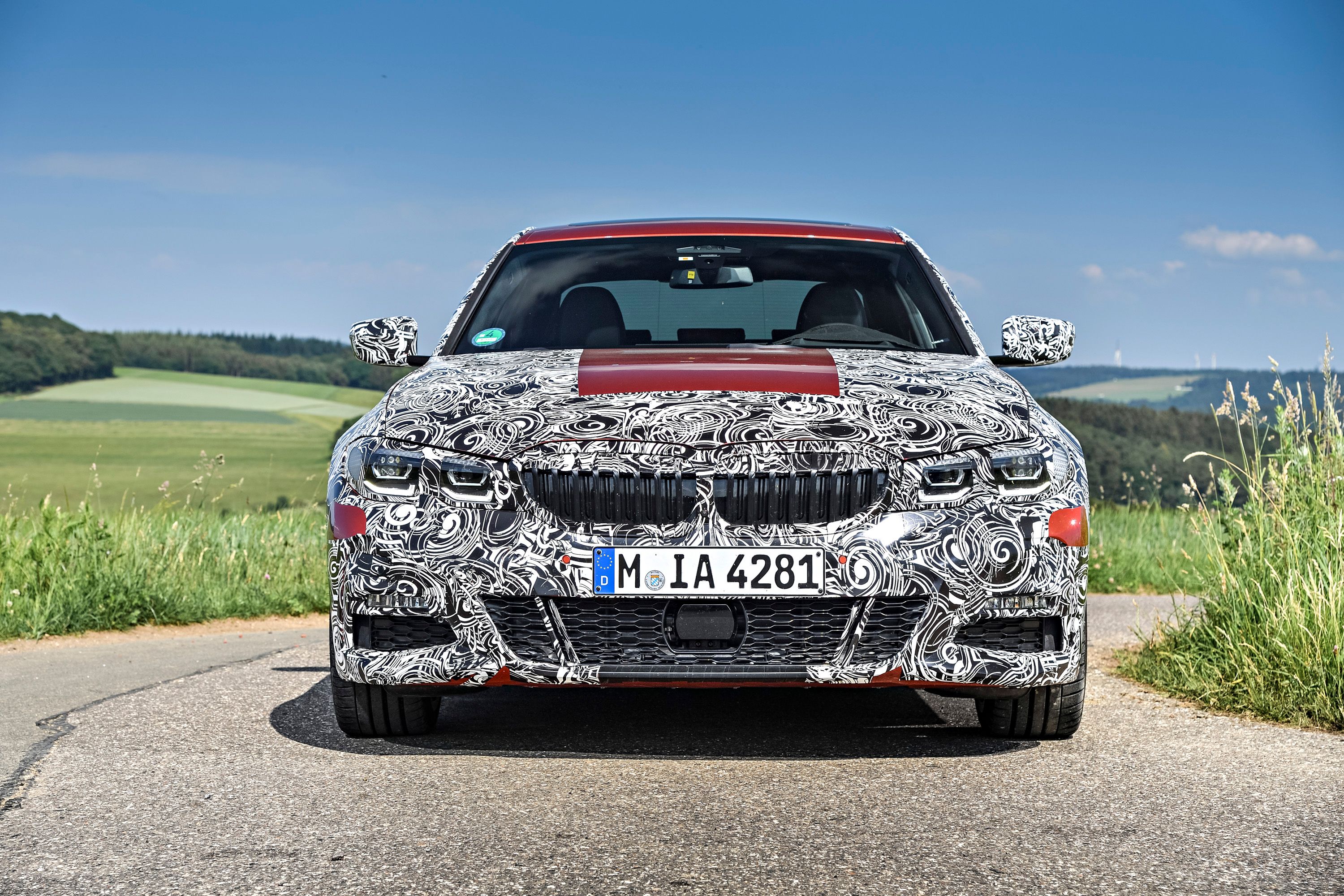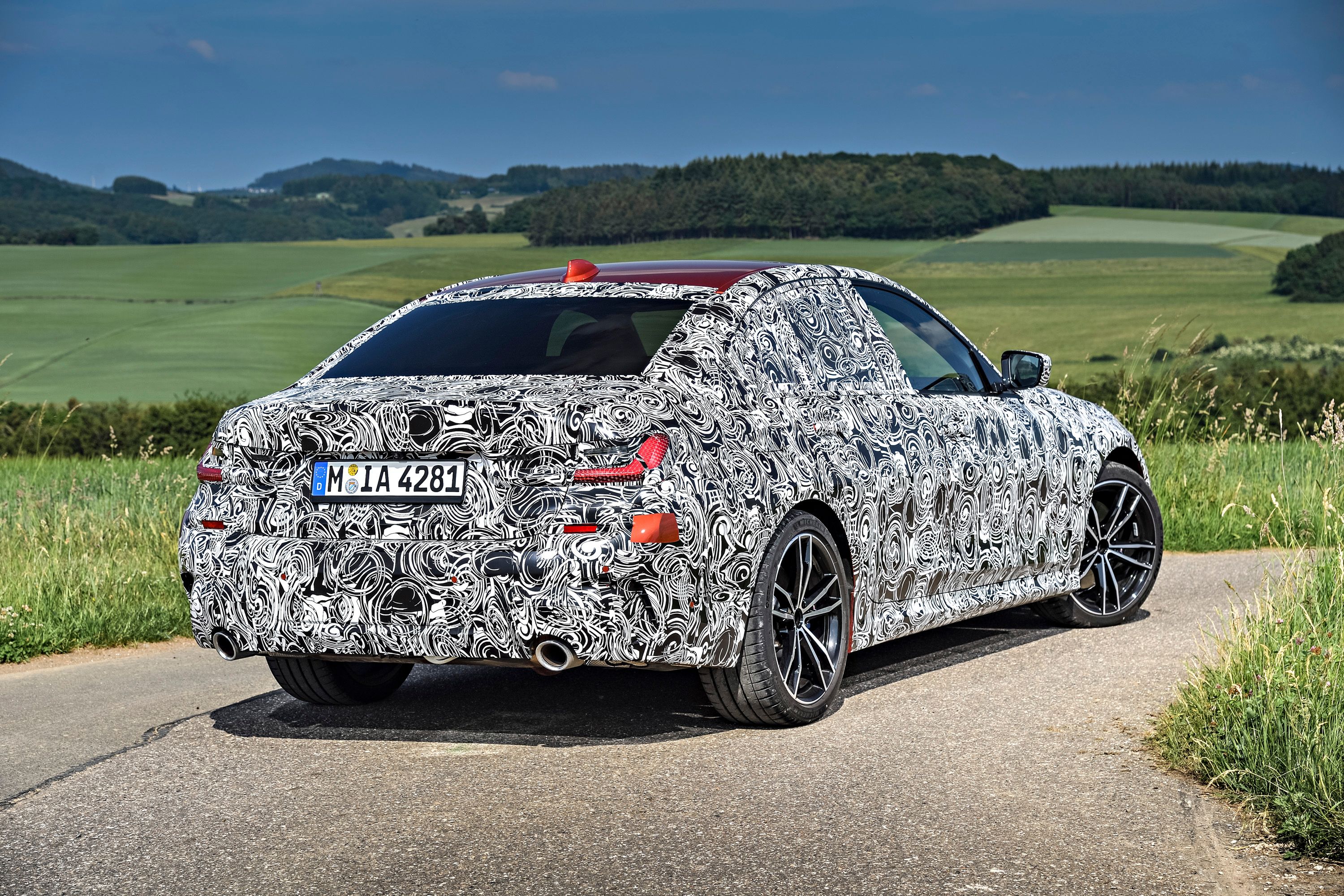Forty-three years and six generations in, the BMW 3 Series remains the standard-bearer among compact luxury sedans. It’s gone through multiple iterations, but the 3 Series still holds court in a segment that has no shortage of rivals. Now that the sixth- and current-generation model is on its last legs, the seventh-generation model with chassis code G20 is about to enter our lives when it makes its debut at the 2018 Paris Motor Show this October. Ready, get set, go. The seventh-gen BMW 3 Series is coming.
That kind of dedication to the 3 Series should be evident when the new model arrives next year. It’s lost around 120 pounds compared to its predecessor, an impressive achievement considering that the new model is larger than its predecessor. The new 3 Series will also retain a 50/50 weight distribution, something BMW engineers achieved by setting the engine as far back in the chassis as possible.
Speaking of the engine, the new 3 Series will feature a host of engine options, including a 2.0-liter turbocharged four-cylinder that gains seven horsepower and 37 pound-feet of torque over its predecessor, all while burning five percent less fuel in the process. Do the math on the power numbers and at least one version of the 3er will have 255 horsepower and 295 pound-feet of torque.
What’s becoming clear at this point is that BMW is preparing the new 3 Series to be more dynamic than all of its past models. For a sedan that made its bones on driving dynamics, that should be music to the ears of 3 Series fans the world over. Granted, there’s still a lot of work that needs to be done to get the new 3 Series to where it needs to be as a successor to the F30 model. According to Autoblog, changes to the electric steering system and tuning the suspension are still on BMW’s top list of priorities.
But for the most part, the pieces are in place for the next-generation BMW 3 Series. The design of the car, both inside and out, is in the final stages of development. Technical and mechanical developments are also going into overdrive, though not to the point where BMW engineers are rushing to meet a deadline. Everything’s coming along smoothly, even with a few bumps along the way. But that’s to be expected in the development of a car that’s as important as the BMW 3 Series. It’s taken the company four years to develop the seventh-generation model, and you can be sure that Bimmer’s not going to rush the final stages. The 3 Series is too important a model for the German automaker. It’s the highest-selling model in the company, and at least according to Kai Lichte of BMW Communications, the 3 Series is the “core and heart of the brand.” Better bet that BMW doesn’t take that description lightly.
Once the next-generation 3 Series debuts at the Paris Auto Show in October, the model will go on sale in the U.S. in the spring of 2019. The 2019 BMW 330i will hit the market first, followed by the 340i a few months later as a 2020 model. The xDrive models will be released at a later time, followed by a plug-in hybrid version, a wagon version, and the highly anticipated M3.
Further reading
BMW 3 Series
Read our full speculative review on the 2019 BMW 3 Series.
Read our full review on the 2017 BMW 3 Series.
Read more BMW news.
Read more Paris Auto Show news.



